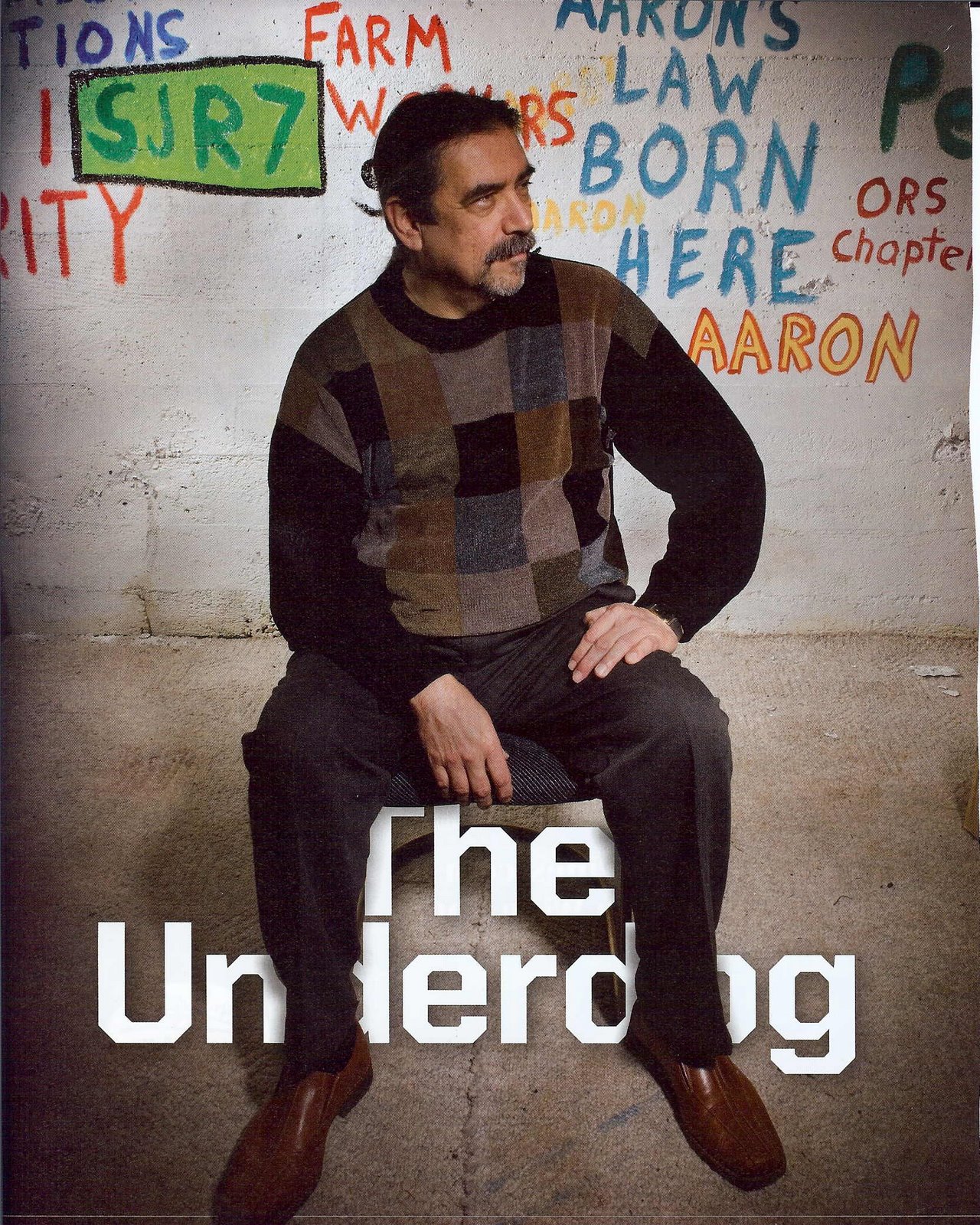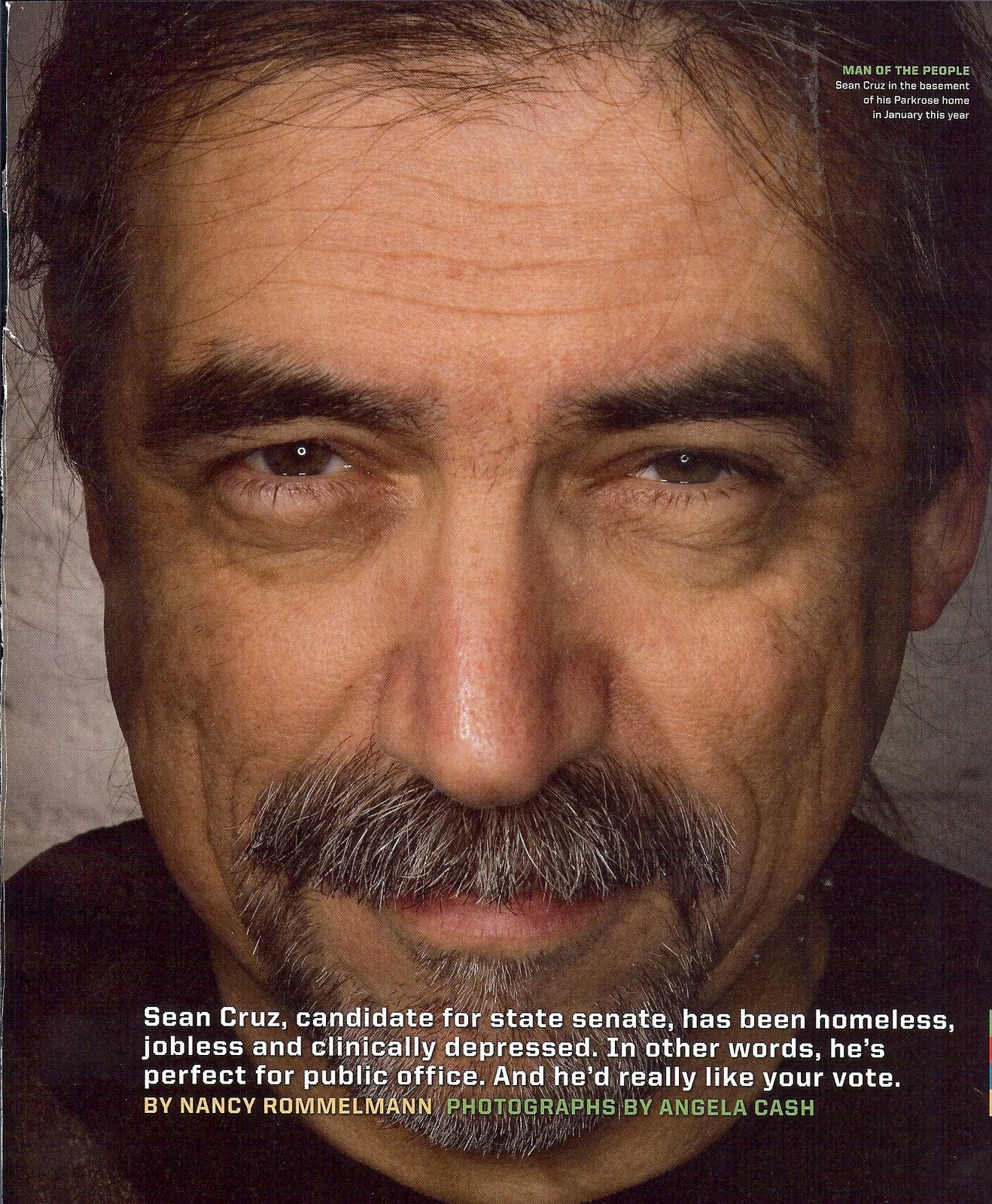PORTLAND--As the presidency of George W. Bush enters ‘the last throes’ stage (to borrow from The Immortal Words of Dick Cheney*), leaving our children and grandchildren an inheritance of trillion-dollar debt, the world economy in collapse, an exhausted military and depleted National Guard, the nation mired in two wars on the other side of the globe, a still-devastated New Orleans and Gulf Coast, fifty million Americans without health care, and the prospect of holiday layoffs looming large for millions more, I recall the words that lept out at me during Mr. Bush’s first press conference following his 2004 election.
Mr. Bush: “…You asked, do I feel free. Let me put it to you this way: I earned capital in the campaign, political capital, and now I intend to spend it. It is my style…I earned some capital. I've earned capital in this election -- and I'm going to spend it….”**
At the time, these words and the cavalier way in which he expressed them, caused me great concern; they were going to lead to a bad end, I thought, and here we are….
To begin with, he did not have the mandate he believed he had, and thus was beginning his second term wildly overestimating his political capital*** bank account.
Even with both houses of Congress firmly in Republican control, he had no margin for profligacy, but he was unaware of the fact….
Secondly, the man was notoriously intellectually lazy and—-prior to the 9-11 attacks-—was setting new records for presidential time away from the office, a largely-overlooked character flaw that he had displayed throughout his entire working life.
Mr. Bush’s efforts—-and the nation’s well-being—-would be saddled by a mind incapable of thinking too deeply or for a prolonged period of time, and by a will to work hard that was far weaker than the standard that the job requires.
The man famously celebrated his own mediocrity….
This created the vacuum that Dick Cheney was all too eager to fill, and here we are.
In recent past elections, Republicans succeeded in large part because they were able to sidetrack the issues that matter by mounting character attacks against their opponents and focusing the debate on issues like gay marriage in the weeks leading up to the day ballots are due.
This time, that strategy won’t work. The character attacks, the side issues, all will be overcome by the gravity of the multiple crises we face today, that we know we will face for years to come.
Barack Obama will be elected the next President of the United States, sweeping Democrats into office all across the nation.
The mandate for change will be clear; there will be no need to send the question of who will lead the nation to the Supreme Court as occurred in 2000, The Year That Democracy Failed….
From the Bush Presidency forward, the only way to go is up, back up….
--Sean Cruz
October 12, 2008
===================================
*Iraq insurgency in 'last throes,' Cheney says
Monday, June 20, 2005, WASHINGTON (CNN) -- The insurgency in Iraq is "in the last throes," Vice President Dick Cheney says, and he predicts that the fighting will end before the Bush administration leaves office.
==================================
**In his first press conference after the November 2004 election, George W. Bush spoke about political capital:
Q Do you feel more free, sir?
THE PRESIDENT: Oh, in terms of feeling free, well, I don't think you'll let me be too free. There's accountability and there are constraints on the presidency, as there should be in any system. I feel -- I feel it is necessary to move an agenda that I told the American people I would move. Something refreshing about coming off an election, even more refreshing since we all got some sleep last night, but there's -- you go out and you make your case, and you tell the people this is what I intend to do. And after hundreds of speeches and three debates and interviews and the whole process, where you keep basically saying the same thing over and over again, that when you win, there is a feeling that the people have spoken and embraced your point of view, and that's what I intend to tell the Congress, that I made it clear what I intend to do as the President, now let's work to -- and the people made it clear what they wanted, now let's work together.
And it's one of the wonderful -- it's like earning capital. You asked, do I feel free. Let me put it to you this way: I earned capital in the campaign, political capital, and now I intend to spend it. It is my style. That's what happened in the -- after the 2000 election, I earned some capital. I've earned capital in this election -- and I'm going to spend it for what I told the people I'd spend it on, which is -- you've heard the agenda: Social Security and tax reform, moving this economy forward, education, fighting and winning the war on terror (emphasis added).
http://www.whitehouse.gov/news/releases/2004/11/20041104-5.html
================================
***America's New Political Capital: President Bush infects Washington with his favorite buzzword. By Chris Suellentrop, Tuesday, Nov. 30, 2004
(excerpted)
We've become accustomed to talking about all kinds of abstract capital in recent years—human capital, social capital, intellectual capital—but Bush's definition of political capital makes the metaphor particularly inapt. For one, you don't spend capital. You invest it. But Bush's understanding of the idea dictates that it be spent rather than saved. As Karl Rove put it in 2001, "If you don't spend it, it's not like treasure stuck away at a storehouse someplace. It is perishable. It dwindles away." What kind of economic message is that from a president who wants to encourage an ownership society?
The question the Post asked in 1993—what in the world is political capital, anyway?—still hasn't been answered satisfactorily. Why, for example, didn't Bill Clinton have capital to spend on health care, in Bush's view, but he had some to spend elsewhere, apparently? Does any other kind of capital have restrictions on where and how it can be used? Edward J. López, an economist at the University of North Texas, delineated two types of political capital in a 2002 paper for the Review of Austrian Economics: "reputational" capital, a politician's "standing with voters and other unorganized interests," and "representative" capital, which includes the powers that stem from a politician's office. But Bush doesn't mean anything that rigorous. In fact, he'd probably scoff at the idea. He just uses it as a substitute for the goodwill that an election gives an executive with the legislature, and he probably likes the way it paints him as a CEO-president.
The president doesn't have any capital, and he knows it. Like a citizen of Weimar Germany, he has a wheelbarrow full of hyper-inflating cash that has to be spent before it becomes worthless. "Political Confederate dollars" doesn't have quite the ring of "political capital," but it's a better metaphor. Any takers?
http://www.slate.com/id/2110256/
Subscribe to:
Post Comments (Atom)






1 comment:
why do you hate president bush
Post a Comment